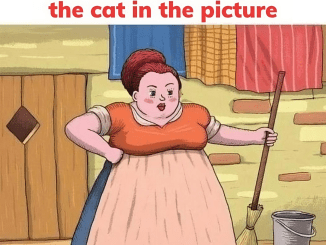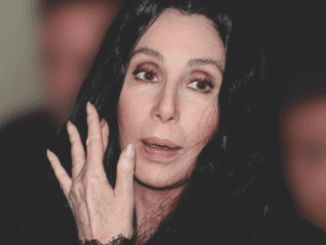Struggles with body image and eating disorders affect millions of people worldwide. Even in an era that promotes body positivity and self-acceptance, many individuals silently battle unhealthy relationships with food and their bodies.
Annie Windley, a 21-year-old from Derbyshire, England, lived through such a battle for five long years. Her story of survival and recovery is a powerful reminder that it’s never too late to take control of your life and health. Annie’s journey from consuming just one piece of bread daily to embracing a balanced lifestyle serves as a beacon of hope for anyone struggling with an eating disorder.

The Dark Reality of Annie’s Eating Disorder
Annie’s struggle with anorexia began in 2012 when she was just a teenager. At her lowest, she weighed a dangerously light 29 kilograms (approximately 63 pounds). The toll on her body was severe—her frailty put her at constant risk of fainting, injury, and even heart failure.
Years of Medical Challenges and Hospitalizations
Over the years, Annie faced numerous hospitalizations and treatments as doctors worked tirelessly to save her. Malnourishment had left her body weak and vulnerable to complications. Yet, the mental grip of anorexia often overshadowed her physical health struggles, making recovery seem like an impossible task.
One Slice of Bread a Day
During the height of her eating disorder, Annie’s diet was limited to a single piece of bread most days. Her self-imposed starvation pushed her body to the brink, leaving her with little energy to function, let alone live fully.
The Turning Point: Choosing Recovery for Herself
In October 2017, Annie made a life-changing decision to fight back against her eating disorder. “I can’t say exactly what occurred, but this time, it was just for myself,” she shared.
This pivotal moment marked the beginning of her road to recovery—a journey filled with challenges, setbacks, and triumphs.
Rediscovering Passion Through Running
Running became a cornerstone of Annie’s recovery. Instead of using energy to restrict food intake, she redirected it toward something positive—her love of running. In October of 2017, she achieved an incredible milestone by completing the Chesterfield Half Marathon, a feat she never thought possible in her weakest moments.
“Running helped me channel my focus into something productive,” Annie explained. “It gave me a sense of success and progress that I could control in a healthy way.”
The Remarkable Progress Annie Made
Annie’s journey to recovery wasn’t easy, but it was undoubtedly worth it. By October 2017, she had begun to gain weight steadily, marking significant progress in her physical and mental health.

Gaining Strength, Both Physically and Mentally
In just four months, Annie gained three stone (approximately 42 pounds). While still a work in progress, this was her heaviest weight since 2014. But for Annie, it wasn’t just about the numbers on the scale—it was about reclaiming her life.
“I realized that rehabilitation could be thrilling, unforgettable, and amazing,” she shared. “Anorexia will always be a part of me, but I’ve learned to control it and stop letting food consume my thoughts.”
What Recovery Taught Annie About Life
Through her recovery, Annie gained a new perspective on what truly matters in life. Her journey taught her that self-respect, kindness toward others, and pursuing personal passions are far more fulfilling than obsessing over physical appearance.
The Importance of Treating Yourself and Others with Respect
Annie’s recovery emphasized the importance of focusing on inner qualities rather than outward appearances. “These are the things that will make you happy and are crucial to your well-being,” she said.
By shifting her focus from food restrictions to her love of running and building healthy relationships, Annie found a sense of purpose and happiness.

A Message of Hope for Others
Annie now shares her story to inspire others battling similar challenges. Her message is simple but powerful: “It’s never too late to change for the better.”
Fighting Back Against the Grip of Anorexia
Annie’s story is a testament to the strength it takes to overcome an eating disorder. She acknowledges the incredible difficulty of the journey but also highlights the courage required to fight back each day.
“We must show our disorders that we are stronger than them,” Annie urged. “We don’t want to spend our lives feeling unhappy and full of regret over the things we missed out on because of anorexia.”
What We Can Learn from Annie’s Journey
Annie’s transformation goes far beyond physical recovery. Her journey offers valuable lessons for anyone facing struggles with mental health, self-esteem, or life challenges.
1. Recovery Is a Process, Not Perfection
Annie openly shares that her eating disorder will always be a part of her. However, she’s learned how to manage it, demonstrating that recovery doesn’t require perfection—it requires persistence.

2. Finding Joy in Passions Can Heal
Redirecting her energy into running helped Annie rebuild her confidence and find joy again. Pursuing hobbies or passions can provide a sense of accomplishment and help shift the focus away from negative thought patterns.
3. Self-Love and Respect Are Key
Annie’s story is a reminder that treating ourselves with kindness and respect is essential for true happiness. Her recovery was fueled by a newfound appreciation for her body and what it could achieve.
Conclusion: Inspiring Hope for a Healthier Tomorrow
Annie Windley’s journey from consuming just one piece of bread a day to completing half marathons and embracing life is nothing short of inspiring. Her story is a powerful reminder that recovery is possible, no matter how overwhelming the battle may seem.
Through determination, self-respect, and rediscovering her passions, Annie transformed her life and now serves as a beacon of hope for others struggling with eating disorders. Her message is clear: change is always possible, and life is worth fighting for.
Annie’s story encourages us all to look beyond physical appearances and focus on what truly matters—kindness, resilience, and the courage to embrace the life we deserve.


